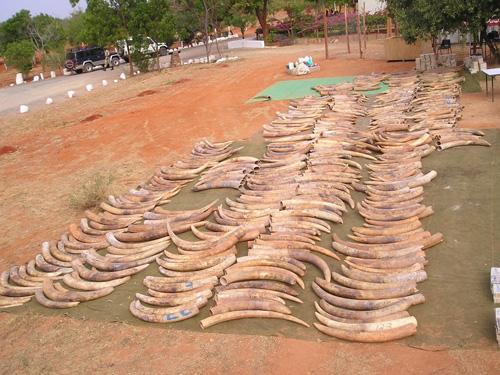Massive African operation traps scores of illegal ivory dealers
 Nairobi - Dozens of suspected dealers in illegal wildlife products have been arrested and one ton of ivory products seized in an operation encompassing five African countries, INTERPOL said Monday.
Nairobi - Dozens of suspected dealers in illegal wildlife products have been arrested and one ton of ivory products seized in an operation encompassing five African countries, INTERPOL said Monday.
The operation - which targeted local ivory markets, airports and border crossings in Kenya, Republic of the Congo, Ghana, Uganda and Zambia - saw 57 suspects arrested.
Aside from raw, powdered and processes ivory products, cheetah, leopard, serval cat and python skins were seized.
INTERPOL said the simultaneous raids took place over the weekend and were the culmination of a four-month undercover operation code- named Operation Baba, which also involved the Kenya Wildlife Service (KWS) and the Lusaka Agreement Task Force.
The task force is an inter-governmental body designed to help African nations cooperate in curbing the illegal trade in flora and fauna.
Some 36 of the suspected ivory dealers were seized in Kenya, many of them in and around national parks and reserves. Three Chinese nationals were amongst those arrested in Kenya.
"Project Baba was a huge success in Kenya," KWS Director Julius Kipng'etich said in a statement. "We strongly believe that the ivory trade fuels the illegal killing of elephants."
The ivory trade has been banned since 1989, but illegal sales have thrived with demand being fuelled largely by China and Japan.
Japanese and Chinese traders took part in a controversial ivory sale in South Africa earlier this month. The sale raised 6.7 million dollars.
The UN-backed Convention on International Trade in Endangered Species (CITES) last year gave the go-ahead for the governments of South Africa, Namibia, Zimbabwe and Botswana to sell ivory accumulated in their national parks in one-day sales.
However, animal rights groups objected to the auctions, saying all sales of ivory - even legal - stimulate black market trade in the so- called "white gold" and, consequentially, elephant poaching.
INTERPOL Secretary General Ronald K. Noble said that Operation Baba was the first in a series of such operations being planned worldwide.
The German government was one of the major funders of the operation. (dpa)